GwinnettForum | Number 21. 38 | May 21, 2021
WATCH OUT! Here they come. We’re talking about cicadas. Chris Brown, on the faculty as an associate professor at Georgia Gwinnett College, writes a fascinating account of the 17 year cycle of these creatures. See in Notable below.
TODAY’S FOCUS: Gwinnett seeks proposals for two plans focusing on equity
EEB PERSPECTIVE: Here’s the thinking behind Raffensperger’s 2020 actions
ANOTHER VIEW:
SPOTLIGHT: E.R. Snell Contractor, Inc.
FEEDBACK: Remembering the way written correspondence was once done
UPCOMING: Norcross on record condemning hate crimes, discrimination and racism
NOTABLE: Scientist at Georgia Gwinnett College explains cicada emergence
RECOMMENDED: The Premonition by Michael Lewis
GEORGIA TIDBIT: Early exploration of Georgia carried out by the Spanish
MYSTERY PHOTO: Small cemetery is this issue’s Mystery Photo
LAGNIAPPE: Rose bushes are happy in their blossoming out at this time of year
CALENDAR: Memorial Day ceremony in Gwinnett will be virtual in 2021
Gwinnett seeks proposals for two plans focusing on equity
By Jeanie Donaldson
LAWRENCEVILLE, Ga. | In remarks at the inaugural Gwinnett Chamber Diversity, Equity and Inclusion Summit, Gwinnett County Board of Commissioners Chairwoman Nicole Love Hendrickson today introduced the Gwinnett Place Mall Redevelopment Equity Plan. She also announced the opportunity for qualified consultants to submit proposals for the development of an Equity Action Plan on behalf of Gwinnett County.
“Diversity defines Gwinnett. The county is committed to putting policies and practices in place that not only embrace our diversity, but also harness its energy, creativity and innovative spirit through equity and inclusion,” Love Hendrickson says.
The December 2020 purchase of the Gwinnett Place Mall site was part of a strategic effort by Gwinnett’s government to create new opportunities for catalytic development in the area. To be created in partnership with HR&A Advisors, the Gwinnett Place Mall Equity Plan will be the next step toward equitable redevelopment. The plan will serve as the foundation for the redevelopment process, ensuring the effort does not exclude or displace Gwinnett County’s marginalized communities, but instead offers them an opportunity to thrive.
Andrea Batista Schlesinger, who leads the HR&A Inclusive Cities practice, will bring her expertise to Gwinnett as she works with her team and Gwinnett leadership to develop the Gwinnett Place Mall Redevelopment Equity Plan. She will be joined by Lamont B. Cobb, an urban planner and alumni of Morehouse College.
The HR&A Advisors and Gwinnett County teams will work together to engage stakeholders, the Gwinnett Place CID and the surrounding community to understand how to bring to life a destination that is truly reflective of the needs of the diverse community. This process will be rooted in engagement, as HR&A will convene a Community Partner Advisory Board to guide the planning process and enlist grassroots organizations to reach all of the diverse communities surrounding the mall.
Joe Allen, Gwinnett Place Community Improvement District executive director, says: “We look forward to collaborating with the county and HR&A Advisors on this effort. An opportunity as unique and impactful as this requires an equally unique and impactful plan. We’re ready to engage our area’s rich diversity of community organizations and Gwinnett residents to understand their needs and ensure that everyone thrives through this transformational redevelopment of the Gwinnett Place Mall site.”
The announcement of the county’s intent to develop an Equity Action Plan further underscores the commitment of Gwinnett leaders to embrace equity and inclusion. The county has issued a Request for Proposal seeking a consultant to evaluate the Gwinnett County government, including the people, policies and procedures that comprise it. The RFP can be accessed at GCGA.us/EquityRFP and is open now through June 8, 2021. The work will examine how the County addresses inclusion in all facets of its government system to identify where disparities impact the living experience for Gwinnettians, with a goal of creating an Equity Action Plan that will:
- Serve as a living document that provides action steps the county should take to create a more welcoming and inclusive community.
- Provide an analysis of current systems, processes, policies, programs, and initiatives relative to county operations to ensure that they do not have disparate impact on residents, businesses and other stakeholders.
- Identify an organizational structure that will support the Equity Action Plan.
- Create an accessible and usable training plan to which the county can commit for continuous learning with a focus on building a common language and shared knowledge about diversity, equity, and inclusion.
- Position Gwinnett as a model of equitable and inclusive governance.
Have a comment? Send to: elliott@brack.net
Here’s the thinking behind Raffensperger’s 2020 actions
By Elliott Brack
Editor and Publisher, GwinnettForum
MAY 21, 2021 | These days we often hear soundbites from people in the news. We seldom get to hear how they arrive at their thinking. Speaking at the Gwinnett Rotary Club recently, Secretary of State Brad Raffensperger gave a glimpse of his thinking as he defended Georgia’s count in the 2020 presidential election.
![]() We’ll give you some idea of what he said, in his own words.
We’ll give you some idea of what he said, in his own words.
“These past months give a timely backdrop to this year’s celebration of President Eisenhower’s May 1st 1958 proclamation Rule of Law Day – the rule of law being the very foundation of our nation. That is easy to do in the good times…..it seems a more difficult ideal for some in more contentious times.
“When I was in the General Assembly in 2015 I wrote an essay on the Rule of Law versus the rule of man. It was theoretical then. Now that I have lived it out, I can say with the strongest confidence that the rule of law is central to who we are as a people.
“When the time came to choose, I came down on the side of rule of law. We can’t let making the right call to defend the Republic be punished by those who don’t understand the importance of doing the right thing.”
Readers may remember that Raffensperger maintained the integrity of the vote counting in Georgia, refusing to “find 12,000 votes” in the face of pressure from former President Donald Trump, which would have turned the election in Georgia.
“When the election outcome was what it was, I had sworn an oath, just like every other elected official, to uphold and defend the law. It didn’t occur to me or anyone on my team to do anything other than uphold the law and honor the truth. The fact that many others chose a different path still astonishes me to this day… and will likely baffle me forever.
“Consider those elected men and women in Congress, who on the evening of January 6, after the storming of the Capitol and the loss of life, still voted to challenge the results. Someday they will have their own reckoning to deal with. Those actions are what undermine millions of Americans’ faith in the rule of law, on both sides of the aisle.”
Raffensperger maintains that “This isn’t a partisan issue. People of all philosophies and parties are vulnerable to it. Be it the supporters of former President Obama, many of whom saw him as a messianic figure and those supporters of former President Trump who see him in similar terms. Both were built up as saving ‘their people’ from the excesses of the enemy….not a foreign enemy mind you, but the political opponent down the street….their fellow American.
“In these contentious times, we need to rely on the rule of law and restore every American’s faith in it. Neighborly kindness and integrity also go a long way to rebuilding trust as we all work on that restoration.
“We have to do better. Integrity counts. It is up to each of us, in our role in the system, in our community, and in our family, to uphold what is right. We all must work with integrity at the core of our being to restore all American’s faith in the rule of law. It we fail in that, our nation will fail in the long run.”
Thank you, Brad Raffensperger, for your clarity of thinking, and your actions.
- Have a comment? Send to: elliott@brack.net
EDITOR’S NOTE: The column originally published in this space by George Wilson on May 21 has been withdrawn following concerns about misattribution of information. We regret the error.
- Have a comment? Send to: elliott@brack.net
E.R. Snell Contractor, Inc.
 The public spiritedness of our sponsors allows us to bring GwinnettForum.com to you at no cost to readers. Today’s sponsor is E.R. Snell Contractor, Inc. of Snellville. Founded in the 1920s, ERS was built on Christian beliefs with honesty and integrity leading the way. Specializing in roads, bridges and culverts, its goal is to build a safe and modern highway system while preserving our natural environment. Through quality production and high safety standards, it strives to be the best contractor possible, while continuing to be a positive influence on its employees and the community.
The public spiritedness of our sponsors allows us to bring GwinnettForum.com to you at no cost to readers. Today’s sponsor is E.R. Snell Contractor, Inc. of Snellville. Founded in the 1920s, ERS was built on Christian beliefs with honesty and integrity leading the way. Specializing in roads, bridges and culverts, its goal is to build a safe and modern highway system while preserving our natural environment. Through quality production and high safety standards, it strives to be the best contractor possible, while continuing to be a positive influence on its employees and the community.
- Visit online at www.ersnell.com.
- For a list of other sponsors of this forum, click here.
Remembering how written correspondence was once done
Editor, the Forum:
![]() Recently, I have come across a lot of business letters from the 1970s. These were of a time before: text messages, emails, faxes, computers and printers.
Recently, I have come across a lot of business letters from the 1970s. These were of a time before: text messages, emails, faxes, computers and printers.
But the previous days were very much a time where letters were a prime means of communication, even something perhaps as mundane as confirming receipt of an item or of a pending appointment or even some short congratulatory note.
Most seemed to be typewritten on an IBM Selectric or similar in vogue electric typewriters of the day. All had, below the signature block, the initials of the sender (in capital letters) followed by a slash and then the initials of the person who typed the letter (in lowercase letters).
Surprisingly, nearly all these letters were in as good a shape as they were those decades ago, including the type on the letterheads, the color and the texture of the papers and the words written on them. I had forgotten how creative businesses were in styling their letterheads, such as embossing of corporate logos and the placement of the addresses and phone numbers in nearly every part of a sheet.
As one reads through these letters, many of the writers come to mind after long ago being forgotten. For a while I would search online to see what was up now with them, but when I started finding more obituary notices than current addresses and phone numbers, I stopped searching. Better I keep the memories of those letter writers as they were in their vibrant days. And that is what has had me occupied (fully) in these recent days.
— Larry Zani, Kaiserslauten, Germany
Consideration of the German pipeline from the Caucuses
Editor the Forum:
German bankers and bureaucrats achieved everything that the Wehrmacht failed to do. And now, finally, the Germans will be getting Russian oil from the Caucuses delivered in a pipeline they didn’t have to build.
They get their pipeline, but we don’t have another. Canadian oil will still go to market, whether it’s by truck or rail, or offshore to China. There will be no reduction in Canadian oil production. Less safe delivery to market makes me wonder.
It’s not that Germany is less green than we are. I believe they still have mandatory recycling and manufacturers have to show how their products are recycled. Alternatives are employed liberally. German auto manufacturers are leaders in electric vehicles. Efficiency is part of the German ethos.
Their new pipeline is remarkably vulnerable, running through the Baltic Sea. The fishing there is important to surrounding countries. I’m surprised that the route was approved.
— Byron Gilbert, Duluth
Send us your thoughts: We encourage you to send us your letters and thoughts on issues raised in GwinnettForum. Please limit comments to 300 words, and include your hometown. The views of letters are the opinion of the contributor. We reserve the right to edit for clarity and length. Send feedback and letters to: elliott@brack.net.
Norcross condemns hate crimes, discrimination and racism
The city of Norcross has passed a resolution condemning “hate crimes, discrimination, and racism in all forms” and reaffirming the city’s commitment to “fair and equal treatment for all.”
 Coming at a time where tragic, discriminatory events have taken place and continue to occur across the country, this statement marks a determined stance by the city against such behavior. It also commits the city to work to ensure the rights of every person who lives, works and visits the City of Norcross. The resolution further declares that the city, including council, police and staff, is committed to “engaging in continuing communication and dialog with the community to address issues of systematic racism, violence, harassment and intolerance and their impact on individuals and on the community as a whole.”
Coming at a time where tragic, discriminatory events have taken place and continue to occur across the country, this statement marks a determined stance by the city against such behavior. It also commits the city to work to ensure the rights of every person who lives, works and visits the City of Norcross. The resolution further declares that the city, including council, police and staff, is committed to “engaging in continuing communication and dialog with the community to address issues of systematic racism, violence, harassment and intolerance and their impact on individuals and on the community as a whole.”
Mayor Craig Newton says: “This is an important issue in our country. There is no place for hate in the City of Norcross, and we feel it is time to make a clear statement that injustice on the basis of race or anything else will not be tolerated in our community.”
- Read the full signed resolution at norcrossga.net/resolutionagainstdiscrimination.
Town of Braselton seeks input about public art master plan
The town of Braselton is working on its first ever Public Art Master Plan and needs the help of its citizens.
 Anyone who lives, works, or invests in Braselton is encouraged to be involved in shaping the Public Art Master Plan. Here’s how:
Anyone who lives, works, or invests in Braselton is encouraged to be involved in shaping the Public Art Master Plan. Here’s how:
- Tell about your views of the Town.
- Take our Community Treasure Survey on the website and tell where Braselton’s treasures are.
- Be creative.
City officials ask people to think about what makes Braselton interesting, unique, a great place to visit or a great place to call home… then send the city those thoughts via photos, renderings, sketches, essays, short stories, ideas, tall tales and one-liners. Just use the “Submit Image or Idea” button on the city website.
GGC scientist explains cicada emergence
By Ken Scar
Christopher Brown remembers where he was when the parents of the 2021 “Brood X” cicadas emerged. He was a graduate student working on his dissertation in Nashville, Tenn. Now, 17 years later, he’s an associate professor of biology at Georgia Gwinnett College, which didn’t exist the last time the inch-long insects made an appearance above ground.
A lot can change in 17 years. Brown, who now lives in Lawrenceville, remembers walking the streets of Nashville in 2004 and seeing the sidewalks and trees littered with the insects and their shed skins. The cicadas look a bit intimidating, with black bodies, orange wings and bright red eyes, and at an inch long, they’re large for an insect, but Brown says there’s nothing to fear from them.
“They might look scary, but they can’t hurt anyone. You could grab one and hold it and it can’t do anything to you,” he says.
Brood X is one of the biggest of the 15 known periodical cicada broods, which will translate into billions of the bugs coming up out of the ground — once the soil reaches 64 degrees — and making a break for the safety of the treetops in large areas of 15 states, from Georgia to New York, and west to the Mississippi River.
Witnessing such a huge arrival of insects is rare, so scientists like Brown are buzzing with excitement over Brood X’s arrival. The genus of the 13-and 17-year cicadas is called Magicicada because they seem to appear magically, says Brown, “But the truth is they’ve been alive under our feet the whole time.”
“The term ‘hatching’ is not quite accurate,” he says. “They hatched from eggs 17 years ago. The females inject their eggs into plants with a swordlike ovipositor, and when they hatch, the nymphs drop to the earth and dig themselves into the ground. They’ve been there, digging around and drinking the fluid from plant roots ever since.”
So, the “emergence” every 17 years represents the end of the cicadas’ lives, not the beginning, notes Brown.
Cicadas are loud, defenseless and big – the perfect prey in the wild. They burst out of the ground all at once to overwhelm their predators. The strategy is a safety in numbers game.There will be enough of them to satiate every appetite with enough left over to mate and carry on the line. Despite the prospect of Magicicadas popping out of the ground in the millions, Brown doesn’t think it’s likely that Brood X’s arrival will have a huge effect on the ecosystems around Gwinnett County this time.
“It might affect the food chain a little, but not like it used to,” he said. “Gwinnett County has grown so much. Where they were buried 17 years ago might now be a parking lot, and we’ve also gotten rid of a huge number of trees. We might not see as many cicadas for those reasons, but they will still be pretty noticeable. I’m curious to see what happens here in the southern limit of their range.”
Brown said most people will hear the cicadas before they see them. Males make a high-pitched trill that sounds like constant, loud television static and can get up to 100 decibels, as loud as a lawnmower. It can be distracting, but there’s nothing hostile about it. It’s a cry for attention, to attract the females and make babies, so the next generation of “magic cicadas” can create their own buzz another 17 years from now.
NAMAR raises food and cash for North Gwinnett Co-op
The Northeast Atlanta Metro Association Realtors (NAMAR) and Women’s Council of Realtors of Gwinnett has collected 2,500 pounds of food, plus $375 in cash, for the North Gwinnett Co-Op. Here’s a view of some of the people involved in the drive. From left are Tom O’Rourke, Jennifer Alou, Lisa Oden, Lisa Tanjuatco, Kathy Deason, Olivia Price, Karen Oakes, Gretchen Ozburn, Cheryl Christensen and Norm Kennedy.
The Premonition by Michael Lewis
![]() From Michael Wood, Peachtree Corners: Michael Lewis (Moneyball, the Big Short, etc.) delivers another perceptive exploration into a subject many see through the wrong lens: The Pandemic of 2020. The Premonition gives readers insight into the often-flawed public health services provided by counties, states, and the Federal Government. He finds the Communicable Disease Center most politicized and ineffective since its directors became presidential appointees rather than long-term public health professionals. George W. Bush, as president, ordered a small group of specialists to come to the White House and develop a national response plan for pandemics. Some of them later joined to battle the current pandemic, but through unofficial channels. They discover Charity Dean, a public health official from California, who brings brilliant insights, passion, and zeal to the team’s work. Readers will see how the nation narrowly missed much worse outcomes than the tragic ones already experienced.
From Michael Wood, Peachtree Corners: Michael Lewis (Moneyball, the Big Short, etc.) delivers another perceptive exploration into a subject many see through the wrong lens: The Pandemic of 2020. The Premonition gives readers insight into the often-flawed public health services provided by counties, states, and the Federal Government. He finds the Communicable Disease Center most politicized and ineffective since its directors became presidential appointees rather than long-term public health professionals. George W. Bush, as president, ordered a small group of specialists to come to the White House and develop a national response plan for pandemics. Some of them later joined to battle the current pandemic, but through unofficial channels. They discover Charity Dean, a public health official from California, who brings brilliant insights, passion, and zeal to the team’s work. Readers will see how the nation narrowly missed much worse outcomes than the tragic ones already experienced.
An invitation: what books, restaurants, movies or web sites have you enjoyed recently? Send us your recent selection, along with a short paragraph (150 words) as to why you liked this, plus what you plan to visit or read next. Send to: elliott@brack.net
Early exploration of Georgia carried out by the Spanish
The initial European exploration of Georgia was carried out in large part by Spaniards, first operating out of colonial bases in the Caribbean Sea and Mexico and later from the city of St. Augustine on the Florida coast. Between 1525 and 1646, expeditions large and small explored both the coast and the interior of Georgia, covering most of the inhabited portions of the Coastal Plain and parts of the lower Piedmont.
 The first documented exploration was carried out along the coastline in 1525 by two ships from Puerto Rico under pilot Pedro de Quejos, who had landed in South Carolina in 1521 on a slaving expedition. This brief reconnaissance of the entire coastline prefaced the subsequent colonial venture of Lucas Vazquez de Ayllon, whose 600 colonists first made landfall in South Carolina before moving south, following Indian trails, to the Georgia coast in 1526. There, in an as yet undiscovered location (perhaps near Sapelo Sound), Ayllon established the short-lived colony of San Miguel de Gualdape, which was abandoned just six weeks later, following political disputes and an uprising by enslaved Africans.
The first documented exploration was carried out along the coastline in 1525 by two ships from Puerto Rico under pilot Pedro de Quejos, who had landed in South Carolina in 1521 on a slaving expedition. This brief reconnaissance of the entire coastline prefaced the subsequent colonial venture of Lucas Vazquez de Ayllon, whose 600 colonists first made landfall in South Carolina before moving south, following Indian trails, to the Georgia coast in 1526. There, in an as yet undiscovered location (perhaps near Sapelo Sound), Ayllon established the short-lived colony of San Miguel de Gualdape, which was abandoned just six weeks later, following political disputes and an uprising by enslaved Africans.
In the spring of 1540, an army of some 600 Spanish soldiers under the command of Hernando de Soto marched north from Florida into southwestern Georgia in search of riches. The expedition crossed the Flint River near present-day Newton, visited the chiefdom of Capachequi located along Chickasawhatchee Creek, and then pushed northeast toward present-day Marshallville, where they recrossed the Flint and stopped briefly at a village called Toa.
The soldiers then moved east to the Ocmulgee chiefdom of Ichisi, with its capital at the Lamar Mound site (from which the Lamar Periodof Georgia prehistory gets its name) near present-day Macon and then to the Oconee River villages of Altamaha, Ocute, and Cofaqui. The expedition continued east into South Carolina, turned north to cross the Appalachian summit in western North Carolina and eastern Tennessee, and finally dropped south again into northwestern Georgia during July. The army stayed more than a month in the capital of the powerful Coosa chiefdom near present-day Calhoun and then marched south to Itaba (Etowah) near Cartersville before following the Etowah River west to Ulibahali at Rome, and subsequently downriver along the Coosa River to Apica and finally into Alabama.
The impact of the 1539-43 Hernando de Soto expedition was enormous. Not only did surviving Spanish chroniclers offer their first and last glimpse of pristine Native American chiefdoms across the interior southeastern United States, but the accidental introduction of European plague diseases most likely resulted in massive epidemic population losses in these same regions.
(To be continued)
- To view the Georgia Encyclopedia article online, go to http://georgiaencyclopedia.org
Small cemetery is this issue’s Mystery Photo
Today’s Mystery Photo is a small cemetery. Your job is to tell us where it is located, and why it’s where it is. Send your answer to elliott@brack.net to include your hometown
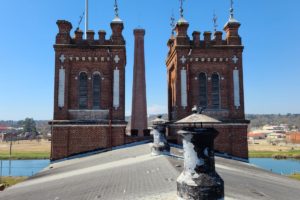 The recent distinctive Mystery Photo came from Rob Ponder of Duluth, and was the scene looking across the roof at a building on the Augusta, Ga. canal that served as the Confederate Powderworks during the Civil War. Three of the regular spotters of mystery photo recognized it, George Graf of Palmyra, Va., Lou Camiero of Lilburn; and Allan Peel of San Antonio, Tex.
The recent distinctive Mystery Photo came from Rob Ponder of Duluth, and was the scene looking across the roof at a building on the Augusta, Ga. canal that served as the Confederate Powderworks during the Civil War. Three of the regular spotters of mystery photo recognized it, George Graf of Palmyra, Va., Lou Camiero of Lilburn; and Allan Peel of San Antonio, Tex.
Graf wrote: “At the beginning of the Civil War gunpowder supplies for the Confederate armies were insufficient. In 1861 Jefferson Davis, president of the Confederacy, charged Colonel George Washington Rains with solving this issue by creating a local supply of gunpowder. Rains chose the flat lands by the Augusta Canal as the most suitable site for making the gunpowder.
“He named Major Charles Shaler Smith as architect to design the Confederate Powder Works. Work on the plant commenced in 1862. When completed, the powder works lined the banks of the Augusta Canal for two miles. The most prominent of the buildings was the refinery, which resembled the British House of Parliament. The Confederate Powder Works, the only permanent edifice constructed by the Confederate States of America, was in operation until April 1865. The Augusta Powder Works produced enough gunpowder to fully meet the needs of the Confederate armies and still retained a surplus of 70,000 pounds at the end of the war.”
Peel adds: “Here’s a more conventional, ground-level view of these two historic structures can be seen here, a photo from Detroit Publishing Co. that is maintained by the Library of Congress.”
Roses are coming into bloom these days. Look at these healthy and beautiful blooms that Tim Keith of Sugar Hill is growing. If you haven’t checked your roses lately, it’s time to spray the leaves so that the bugs don’t chew on them and diminish your rose output.
- Have a comment? Send to: elliott@brack.net
Memorial Day ceremonies in Gwinnett will be conducted virtually beginning at1 p.m. May 31. The ceremony will be available on demand at GwinnettCounty.com, be televised on the county access cable channel, premiered on Facebook and posted to Twitter. The keynote speaker will be retired Air Force Master Sergeant L.C. Johnson of Duluth.
- Have a comment? Send to: elliott@brack.net
GwinnettForum is provided to you at no charge every Tuesday and Friday.
Meet our team
- Editor and publisher: Elliott Brack, 770-840-1003
- Managing editor: Betsy Brack
- Roving photographer: Frank Sharp
- Contributing columnist: Jack Bernard
- Contributing columnist: Debra Houston
- Contributing columnist: George Wilson
More
- Location: We are located in Suite 225, 40 Technology Park, Peachtree Corners, Ga. 30092.
- Work with us: If you would like to serve as an underwriter, click here to learn more.
Subscriptions to GwinnettForum are free.
- Click to subscribe.
- Unsubscribe. We hope you’ll keep receiving the great news and information from GwinnettForum, but if you need to unsubscribe, go to this page and unsubscribe in the appropriate box.
© 2021, Gwinnett Forum.com. Gwinnett Forum is an online community commentary for exploring pragmatic and sensible social, political and economic approaches to improve life in Gwinnett County, Ga. USA.




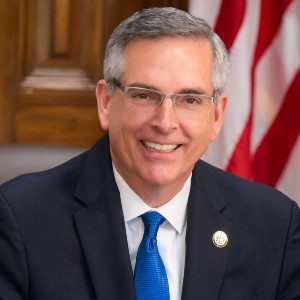
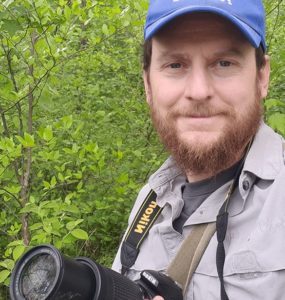

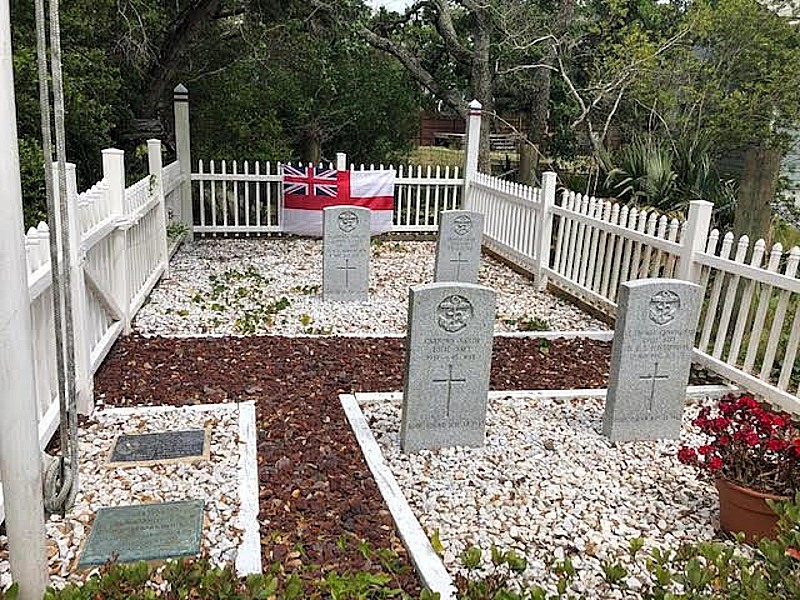
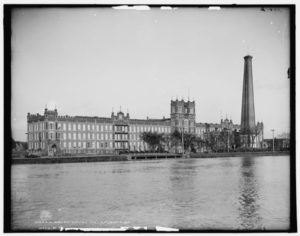

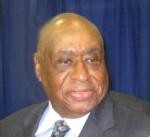







Follow Us